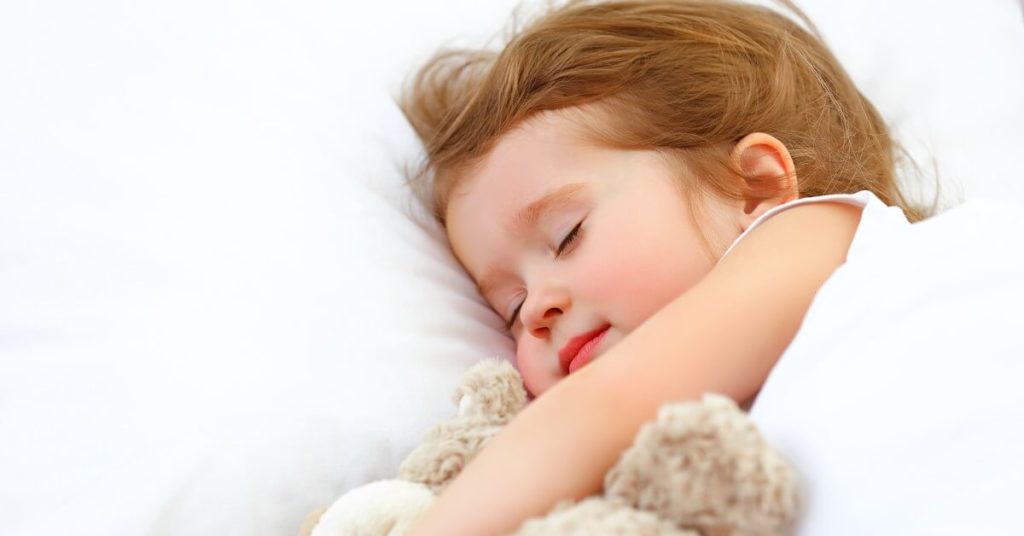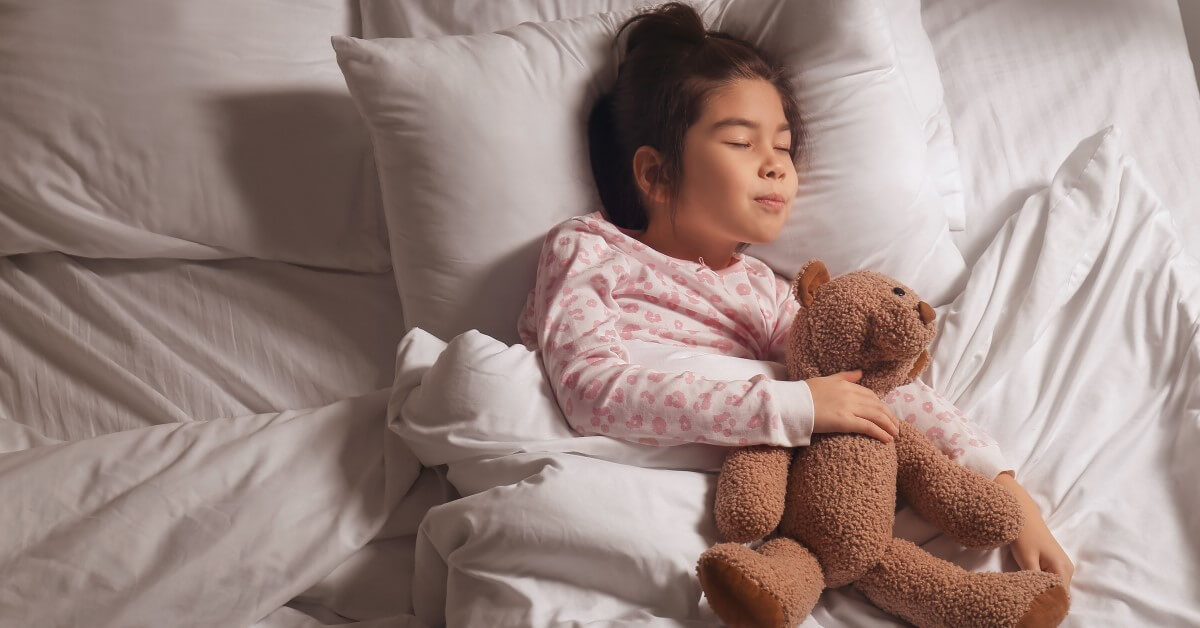
Medically reviewed by
Dacelin St Martin, MD
Triple board-certified in Sleep Medicine,
Internal Medicine, and Pediatrics.
The Study: Changes in Sleep vs Quality of Life | The Study: The Results |
The Study: Next Steps for Parents
Overview
It is common knowledge that adequate sleep is essential to optimal physical and mental well-being. This finding is particularly true for kids, as consistent quality sleep is crucial to their growth, development, and quality of life.[1,2]
New research demonstrates that little as 39 minutes of sleep loss can significantly impact children’s happiness and health.[3]
This article will elaborate on the ground-breaking study and emphasize why you prioritize good sleep for your kids.
The Study: Changes in Sleep vs Quality of Life
Experts from the University of Otago in New Zealand have found a link between changes in children’s sleep and their health and quality of life.[3]
In their landmark study, the researchers kept track of 100 kids between the ages of 8 and 12. The kids went to bed one hour earlier for a week and one hour later the following week. In between, they went to bed at the usual time for a week.
Then, the children and their parents filled out a questionnaire to rate how much their sleep was disturbed and how well they could function during the day. The children were also asked to complete a survey about their health-related quality of life, and their responses were collated and analyzed.
The result showed that the youngsters who received less sleep experienced significant health repercussions.[3] Before the study, the kids usually slept between 8 and 11 hours a night and were considered healthy.
The Study: The Results
Surprisingly, the study indicated that just 39 minutes less sleep daily for a week was more than sufficient to impact the children’s health negatively. The kids reported feeling worse overall and had a more challenging time at school after one week of getting more than 39 minutes less sleep each night.
Racheal Taylor, Ph.D. —the study’s lead author and a research professor at the University of Otago noted that not all of the children in the study could cut their sleep by an entire hour. However, the kids’ well-being worsened no matter how much they cut back. She also said the effects were worse if the study participants lost half an hour or more of sleep.
Concerning the research, Taylor noted that it looked at many aspects of well-being, like how the kids felt physically and mentally, how they got along with their parents and other kids, and how they felt about school.[3]
“We all know that a good night’s sleep makes us feel better, but there aren’t many studies that show how big of an effect it might have,” Taylor said. “This kind of interventional data is the only way we can “prove” that changing one behavior does affect another,” Taylor added.
The Study: Next Steps for Parents
Concerning the study’s next steps, Taylor and her colleagues emphasized that their research shows how vital sleep is to children’s health and advised parents always to prioritize their child’s sleep.
“It may be easy to shrug off a few hours of lost sleep, but receiving less sleep can lead to consuming more junk food, declining academic performance, and deteriorating mental health,” she said.
Furthermore, sleep experts have suggested that parents need an individualized sleep strategy for their kids. Ariel Williamson, a pediatrician at the Children’s Hospital of Philadelphia, noted that getting enough good sleep is essential. Still, making a plan that works for your family is also important.
“Some children with neurodevelopmental difficulties, such as autism or attention deficit hyperactivity disorder, have varying sleep requirements, so devising a sleep schedule that works for you and your kid is critical,” Williamson said.[4]
Also, Williamson suggests taking small but consistent steps to improve your child’s sleep duration, such as gradually increasing your child’s bedtime by 15 minutes. Additionally, it is essential to adopt healthy sleep practices to improve sleep quality.[5]
Embracing healthy sleep habits like maintaining a consistent nap time for your kids and having a relaxing sleep-time routine can elevate your child’s sleep.[5]
Taylor noted that if children’s sleep were optimized, many other elements of their health and welfare would also improve significantly.
References:
- Dahl, R. E. (2007). Sleep and the developing brain. Sleep, 30(9), 1079–1080. https://doi.org/10.1093/sleep/30.9.1079
- Diaz, A., Berger, R., Valiente, C., Eisenberg, N., VanSchyndel, S., Tao, C., Spinrad, T. L., Doane, L. D., Thompson, M. S., Silva, K. M., & Southworth, J. (2017). Children’s sleep and academic achievement: The moderating role of effortful control: The moderating role of effortful control. International Journal of Behavioral Development, 41(2), 275–284. https://doi.org/10.1177/0165025416635284
- Taylor, R. W., Haszard, J. J., Jackson, R., Morrison, S., Beebe, D. W., Meredith-Jones, K. A., Elder, D. E., & Galland, B. C. (2023). Effect of sleep changes on health-related quality of life in healthy children: A secondary analysis of the DREAM crossover trial. JAMA Network Open, 6(3), e233005. https://doi.org/10.1001/jamanetworkopen.2023.3005
- Souders, M. C., Zavodny, S., Eriksen, W., Sinko, R., Connell, J., Kerns, C., Schaaf, R., & Pinto-Martin, J. (2017). Sleep in children with autism spectrum disorder. Current Psychiatry Reports, 19(6), 34. https://doi.org/10.1007/s11920-017-0782-x
- Bonuck, K. A., Blank, A., True-Felt, B., & Chervin, R. (2016). Promoting sleep health among families of young children in Head Start: Protocol for a social-ecological approach. Preventing Chronic Disease, 13(160144), E121. https://doi.org/10.5888/pcd13.160144

